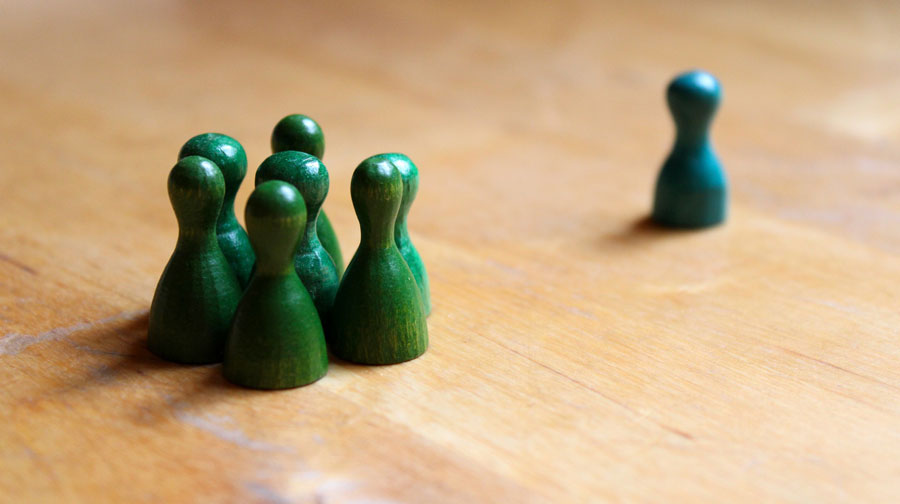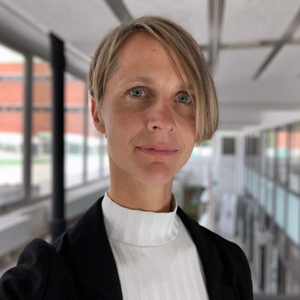“They’re not with us”

We all have our prejudices, no matter how hard we try to shake them off . What matters is how we act on them. Ulrika Georgsson, Communications Officer at the School of Industrial Engineering and Management, believes that knowledge and intention go a long way, as does admitting we sometimes think unfitting thoughts.
A man walked around the tables at a research conference to gather the speakers. When passing a group of women researchers, he said loud and clear, “no, they’re not with us” – perhaps he genuinely thought the women were in the wrong break room. This kind of event may seem benign, but for the women, it was probably not the first of its kind, nor will it be the last.

I am also biased and judge people by their looks. It hurts for me to write this, as I have always fought for equality. When I pass a beggar in the subway I very seldom think he a KTH alumni. And other times I clutch my handbag a little closer just because of the company I am in. The judgement takes a split second, and it bothers me that I can’t draw on the associations I want.
I think you also have prejudices, no matter how hard you try to get rid of them. Prejudice has always existed and has been vital for human survival. In order to get by, we had to sort our surroundings into the categories of friends and enemies, dangerous and safe. Our primitive brain still sends lightning-fast warnings when we encounter something unfamiliar.
What we do with the information is what matters; biased decisions can have significant consequences. We risk excluding large groups, losing out on essential skills when recruiting, creating unhealthy work environments that people leave, and becoming less innovative as a result of homogeneity.
Fortunately, there are other ways to manage the brain’s information, as long as the intention is there. Both the man at the conference and I exist with these primitive thoughts, however he chose to acknowledge them by saying “they’re not with us,” whereas I usually do something else.
I think the fact that I am aware of the problems and know how widespread they are affects my behaviour. What’s more, I want to change. I feel ashamed of my thoughts, so I reflect on them and what I need to do to improve. Perhaps the man lacked knowledge about inequalities or the will to change. Maybe he knew exactly what he was doing and spoke out of reluctance to accept the new and the unfamiliar.
Fortunately, the management at the School of Industrial Engineering and Management are wise. They want to solve problems and make unbiased decisions. They want to reflect, change and improve, this was clear at our latest JML workshop – our managers try to be aware of the weaknesses that arise when our prejudices sneak up on us. This warms my heart.
One of our heads of department put it this way:
“The worst thing we can do is say we do not have any prejudices. I know I make mistakes sometimes, and I want those around me to be brave enough to speak out when these mistakes happen.”
Text: Ulrika Georgsson
